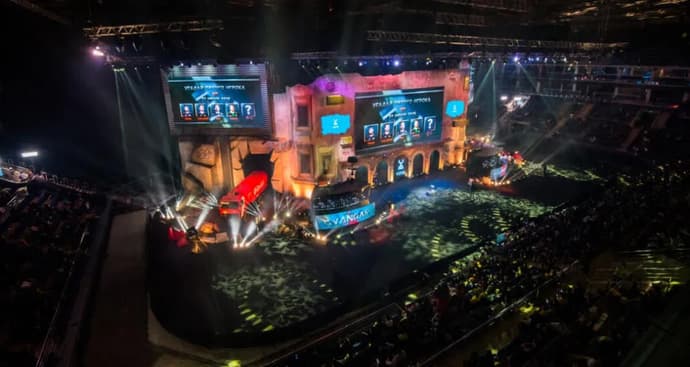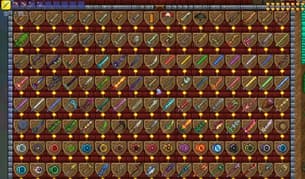
Guide to formats of esports tournaments

Modern esports tournaments are held by completely different rules. Organizers choose the format themselves and nowadays there isn't one standard of holding a championship in esports as it exists in soccer, for instance. Due to that, regular viewers not often understand what meetings affect the, how many rounds a series will have and whether the team has a right to make a mistake. Specifically for those who haven't worked out esports tournament formats, we offer a brief guide to them. The information will be useful primarily for gamblers but it will not go amiss even for regular fans.
What tournament formats exist in esports?
First of all, we need to single out three main components of any event in esports: group stage, playoff and matches which are held at these stages. Each of them has several holding variations.
Types of matches (series)
In esports all the matches are held till a certain number of wins. Here we can find an analogy with tennis or volleyball where the opponent who has taken 2 sets wins.
There are such kinds of matches:
- best-of-1(bo1) — a game till one win on the map;
- best-of 2(bo2) — a game of two maps, a tie is possible 1-1;
- best-of-3(bo3) — a game till two won maps;
- best-of-5(bo5) — up to three wins (such matches are played at finals of Dota and CS:GO tournaments);
- best-of-7(bo7) — up to 5 wins (Rocket League, RanbowSix).
Group stages
Groups can happen at all serious tournaments. They help to bolt out weaker contestants to make only the worthy make it to the playoff. Depending on the quantity of participants in the tournament and the format, organizers may split the teams into 2-8 groups or may not do it. At each stage some of the teams make it to the definite stage, playoff, or leave the event. Sometimes groups get divided only for defining of a level of the teams and seeding them at the final stage of the tournament.
Group stages have the following format:
- round-robin;
- GSL-система;
- Swiss system.
Round-robin
This system is also called all-play-all. There all teams of the group play with each one after another at one or two bo1-bo3 matches. A good example for this system in real sports is a group stage of Champions League. Teams play with each other, get points and the results of the stage define who is going to move further and who is going to leave.
In esports round-robin is very spread. It gives a big quantity of matches to the viewers and the organizers have a lot of broadcast time and content. However, the main drawback of this format is a big amount of unnecessary matches that cannot solve anything. For instance, when one of the teams has already passed to the next stage and the second one lost a chance to do it, but they still have to play their match. Round-robin is used in many disciplines, more often for MOBA games (Dota2, LoL). By the way, this format was used at The International 2018.
GSL system
It is predominantly used only in groups for 4 teams (but sometimes other quantity of teams is possible). In these groups four participants get split into two pairs. The winner of each of them meet together at the bo3 series. The team that has won twice passes from the first place. Then the team that have lost the first round meet. The losing team takes the last place. The other two teams take the last position. The other two teams play for the 2-3 places. The format is pretty popular and excludes the unnecessary matches completely. Each game influences the position in the group as well as the chance to get to the playoff. GSL is often used at Dota2 Majors. It has gained popularity thanks to DreamHack CS:GO tournaments that have a prize pool of $100,000.
Swiss system
It is used when there are a lot of participants and there is no chance to have GSL or Round-Robin, or when this format is traditional for the discipline. The Swiss system moved to esports from chess where several hundreds of player can play.
In the Swiss system teams (players) get divided into pairs. Splitting can be done with a draw procedure or with seeding according to the participant's rating or status. So, at the first round a quantity of pairs has appeared. After that they play and find the winners. The won contestants get split again as well as losers. Then some of them will have 2-0, some of them will have 1-1, and some - 0-2. The participants with the same score will get divided into pairs. In the end the group will have a fixed placement to the positions.
For instance, in CS:GO the Swiss system is played with sixteen teams. Eight out of them move further to the playoff. To pass to the next stage, a team has to win three meetings. To lose, players have to fail at three matches. Then, having been placed to the positions of the group, the teams find opponents for each other. The Swiss system is also spread in Hearthstone, fightings, simulators, card games. The format of matches can be of any kind. Bo3 is mainly used in CS:GO.
Playoff
The playoff is usually played by the so-called Olympic system — classical tournament bracket where participants leave after each round and at the end there are only two finalists. In esports the playoff can be of two kinds: single and double elimination.
In the first case, the losing team leaves the competition and the winning team passes to the next stage. In case of double-elimination, the losing team gets to the lower bracket and leaves the competition after a loss there. In fact, double-elimination is two tournament brackets which let one team from each of them pass to the final. These formats of the playoff are used at all popular disciplines, starting with LoL and finishing with CS:GO.
You can see different variations of triple-elimination really rarely. This bracket has 3 levels and to get out of the competition, you need to lose 3 series at the playoff. This format is used in disciplines with a big number of participants and the game itself has a high level of random. Triple-elimination can be met at events of collection card games (Hearthstone, MTG, Gwent), various fightings (Street Fighter, Mortal Combat, Tekken) or sports simulators.

Yuriy Sheremet – Expert in mobile gaming and esports among shooters and MOBA games.
At EGamersWorld, Yuriy, as in 2020 when he joined the portal, works with content, albeit with adjustments to his area of responsibility.
 Mewgenics Overview: Release Date & PriceThe long-awaited Mewgenics release date is set. Get ready for the tactical cat RPG from The Binding of Isaac's co-creator.
Mewgenics Overview: Release Date & PriceThe long-awaited Mewgenics release date is set. Get ready for the tactical cat RPG from The Binding of Isaac's co-creator.
 Overwatch Season 1: A New BeginningOverwatch Season 1 drops the "2" on Feb 10, 2026. Get ready for five new heroes, a UI overhaul, the Reign of Talon story, and a Hello Kitty crossover. Here’s everything you need to know.
Overwatch Season 1: A New BeginningOverwatch Season 1 drops the "2" on Feb 10, 2026. Get ready for five new heroes, a UI overhaul, the Reign of Talon story, and a Hello Kitty crossover. Here’s everything you need to know.
 All New Terraria Weapons in 1.4.5.0 PatchCheck out every new Terraria 1.4.5.0 weapon in the Bigger & Boulder update, from early-game whips to the powerful True Copper Short Sword.
All New Terraria Weapons in 1.4.5.0 PatchCheck out every new Terraria 1.4.5.0 weapon in the Bigger & Boulder update, from early-game whips to the powerful True Copper Short Sword.
 No Rest for the Wicked: Complete Beginner’s Guide And Essential TipsEssential tips for No Rest for the Wicked. Discover how to defeat Warrick the Torn, unlock city upgrades, and complete Captain Randolph's bounties.
No Rest for the Wicked: Complete Beginner’s Guide And Essential TipsEssential tips for No Rest for the Wicked. Discover how to defeat Warrick the Torn, unlock city upgrades, and complete Captain Randolph's bounties.


